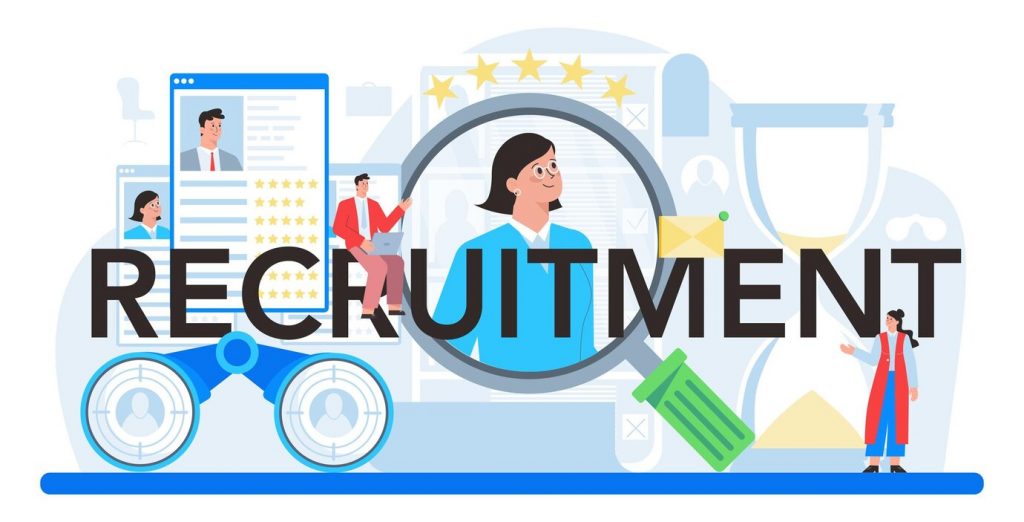Introduction
AI interviews are transforming modern hiring processes, offering efficiency, consistency, and data-driven decision-making. Companies worldwide are leveraging AI to screen candidates, conduct virtual interviews, and assess soft skills using machine learning algorithms. According to a over 67 percent of global HR leaders have integrated AI in recruitment to streamline talent acquisition.
However, with this digital shift comes a critical challenge: data security in AI interviews. AI-driven hiring tools collect vast amounts of sensitive candidate data—ranging from resumes and video recordings to psychometric assessments and biometric identifiers. Mishandling this data can result in privacy breaches, biased decision-making, and non-compliance with legal regulations such as GDPR and CCPA.
As AI becomes deeply embedded in hiring, companies must prioritize candidate data protection to maintain trust, ensure ethical hiring, and comply with global privacy laws. This article explores privacy concerns in AI interviews, best practices for secure AI recruitment, and the future of AI-powered interview privacy in a highly digitized talent ecosystem.
Also Read: How to Conduct an Effective Structured Interview | Best Practices
Understanding AI-Powered Interview Privacy
AI-powered recruitment platforms collect and analyze candidate data through multiple channels. The process typically involves:
- Data Collection: AI tools gather candidate details, including resumes, social media profiles, video interviews, and behavioral assessments.
- Processing and Analysis: Machine learning algorithms evaluate a candidate’s tone, facial expressions, and linguistic patterns to determine suitability.
- Storage and Retention: Candidate data is stored in cloud databases, often for future reference in talent pools.
Key Privacy Concerns in AI Interviews
Data Misuse and Unauthorized Access
AI recruitment platforms store large volumes of candidate data, making them attractive targets for cybercriminals. IBM’s 2023 Data Breach Report found that the average cost of a data breach in HR-related AI systems reached $4.45 million in 2023. Unauthorized access by external attackers or internal employees can compromise sensitive candidate information, leading to identity theft and reputational damage.
Bias and Lack of Transparency
Many AI hiring models lack transparency, making it difficult for candidates to understand how their data is used. A 2022 Harvard Business Review study found that 45 percent of AI hiring tools exhibited bias due to flawed training data, leading to concerns about fairness and discrimination.
Lack of Candidate Consent
Many AI recruitment platforms operate without clear consent policies, leaving candidates unaware of how their personal information is stored, analyzed, and shared.
Case Study: Amazon’s AI Recruitment Bias
Amazon developed an AI-driven hiring system in 2018, but it was later abandoned due to gender bias. The AI model, trained on male-dominated hiring patterns, disproportionately favored male applicants, highlighting the risks of biased AI hiring models.
Also Read: AI and HR: Perfect Balance Between Automation & Human Touch
Candidate Data Protection in AI Hiring
To ensure secure AI recruitment, organizations must implement robust security protocols that safeguard candidate information from breaches, unauthorized access, and misuse.
Major Risks of Data Breaches in AI Hiring
- Sensitive information exposure: AI platforms collect highly personal data, including facial recognition and voice analysis.
- Phishing and identity theft: Cybercriminals can exploit exposed data to target job seekers.
- Reputational damage: A single data breach can erode employer trust and impact recruitment efforts.
How AI Hiring Platforms Ensure Candidate Data Protection
- Encryption and Secure Databases: End-to-end encryption ensures that candidate data remains protected from unauthorized access. Secure cloud storage providers like AWS and Microsoft Azure offer AI security frameworks to protect recruitment data.
- Role-Based Access Control (RBAC): HR teams should implement multi-factor authentication (MFA) and role-based access controls (RBAC) to prevent unauthorized personnel from accessing sensitive information.
- AI Ethics in Candidate Data Protection: Companies should adopt ethical AI frameworks that prioritize fairness, transparency, and privacy. Organizations like The AI Now Institute advocate for explainable AI (XAI), ensuring that AI decisions remain transparent and accountable.
Also Read: How to Identify & Overcome the Glass Ceiling in Your Career Path
AI Hiring Compliance: Legal and Regulatory Aspects
With AI transforming hiring, global regulators have tightened data protection laws to ensure ethical AI usage. Companies must comply with these regulations to avoid legal repercussions.
Key AI Hiring Compliance Laws
- General Data Protection Regulation (GDPR): Requires companies to obtain explicit consent before collecting and processing candidate data. Candidates have the right to request deletion of their personal data from AI recruitment platforms.
- California Consumer Privacy Act (CCPA): Grants job seekers the right to know what data is collected and how it is used. Requires employers to disclose AI-driven decision-making criteria.
- EU AI Act (Upcoming Regulation): Expected to introduce strict regulations for AI hiring tools, ensuring that they comply with fairness and transparency principles.
How Companies Can Ensure Compliance
- Implement privacy-by-design AI models that prioritize security from the outset.
- Conduct regular audits to assess AI compliance with global data protection laws.
- Ensure that candidates can opt out of AI-driven hiring processes if they prefer traditional interviews.
Also Read: Glass Ceiling in Corporate Hiring: What HR & Recruiters Must Know
Best Practices for Secure AI Recruitment
To mitigate privacy concerns in AI interviews, HR leaders should adopt the following structured security measures.
Ensuring Secure AI-Powered Interviews
Use AI tools with robust security certifications (ISO 27001, SOC 2 compliance).
- Implement multi-layered authentication for AI recruitment platforms.
- Regularly update AI models to eliminate biases and improve transparency.
- Educate candidates on how their data is used and stored.
Case Study: How JobTwine Ensures AI Hiring Compliance
JobTwine, a leader in AI-powered interviews, has implemented secure AI recruitment frameworks that:
- Use encrypted cloud storage for candidate data protection.
- Follow GDPR and CCPA compliance to maintain ethical hiring standards.
- Offer human oversight to ensure AI-driven decisions remain fair and unbiased.
Future Trends in AI-Powered Interview Privacy and Security
The future of AI in recruitment will be defined by privacy-preserving AI, ethical hiring frameworks, and decentralized data storage.
Emerging Trends in AI-Powered Interview Privacy
- Blockchain in Recruitment: Blockchain technology can enhance candidate data security by providing tamper-proof digital records.
- Federated Learning for Privacy-Preserving AI: AI models will leverage federated learning, allowing recruitment platforms to analyze candidate data without storing it centrally.
- Stronger AI Regulation and Oversight: Governments will introduce more stringent AI hiring compliance laws to prevent data misuse and discrimination.
Also Read: What is the Glass Ceiling? Understanding Workplace Barriers
Conclusion and Actionable Steps
AI interviews are revolutionizing hiring, but they come with significant data security and privacy challenges. Companies must proactively implement secure AI recruitment protocols, comply with legal regulations, and prioritize ethical AI usage to maintain candidate trust.
Actionable Next Steps:
- Adopt AI tools with strong encryption and privacy safeguards.
- Conduct regular compliance audits for AI hiring platforms.
- Educate HR teams and candidates on AI data protection.
- Stay updated on AI hiring compliance laws (GDPR, CCPA, EU AI Act).
By implementing these best practices, companies can leverage AI-driven hiring while safeguarding candidate privacy in an evolving digital recruitment landscape.
Frequently Asked Questions (FAQs)
How do AI interviews impact candidate data security?
AI interviews collect and process personal data, requiring strict encryption and compliance measures to prevent breaches.
What are the biggest privacy concerns in AI-powered interviews?
Data misuse, lack of transparency, AI bias, and non-consensual data collection.
How can companies ensure AI hiring compliance?
By adhering to GDPR, CCPA, and AI ethics guidelines, ensuring transparency in AI decision-making.
What role does encryption play in AI-powered interview privacy?
Encryption protects candidate data from unauthorized access and cyber threats.
How does JobTwine ensure secure AI recruitment?
JobTwine follows GDPR, uses encrypted cloud storage, and maintains AI transparency to ensure ethical hiring.




